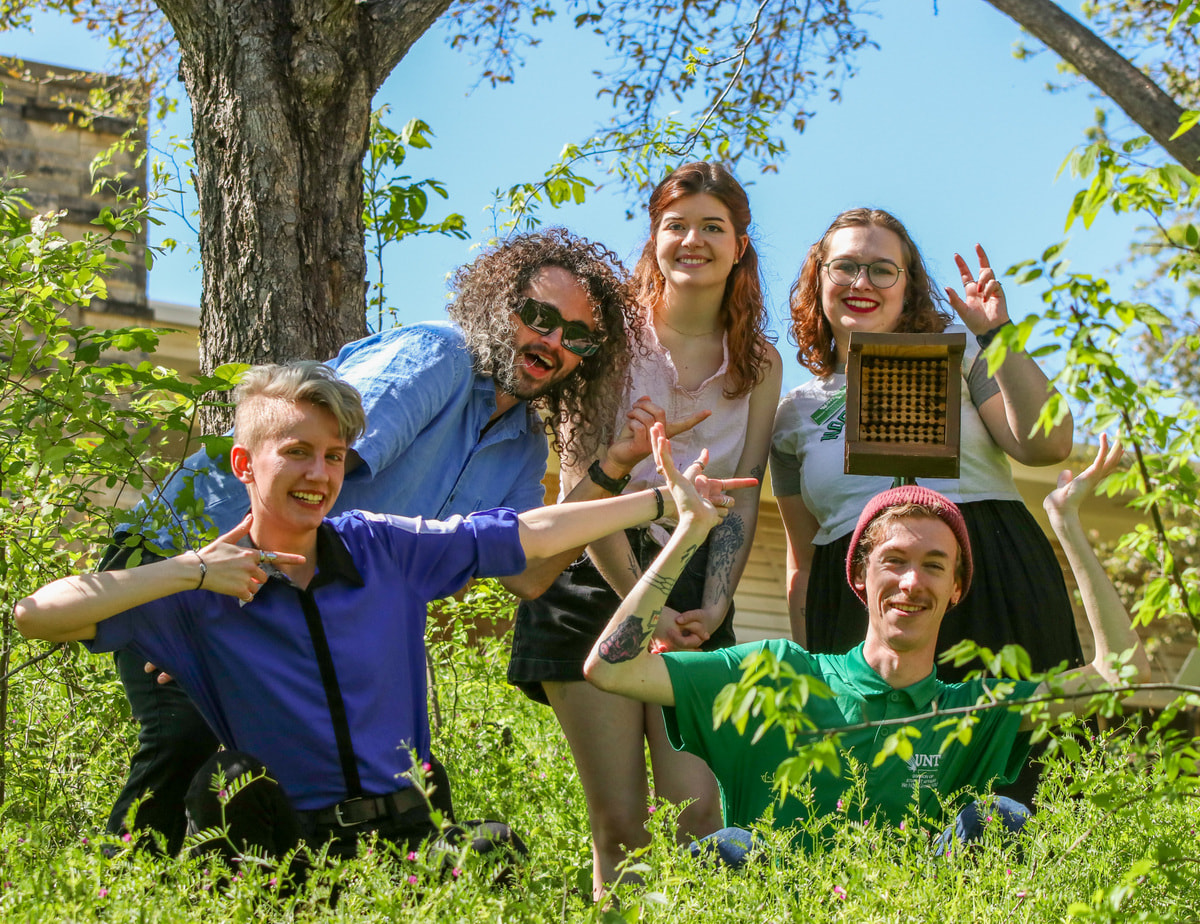DENTON (UNT), Texas — A group of students, with the help of a grant through the We Mean Green Fund, are improving the ecosystem at the University of North Texas one bee box at a time. The goal of the bee boxes is to help nurture the ever-important bee population. While bees might seem small, they have a great environmental impact.
Ethan Phillips, a UNT senior studying ecology and vice chair of the We Mean Green Fund, built the first two bee boxes for campus.
“It started in 2021 when I was volunteering for the Pollinative Prairie at Discovery Park. I didn't know what bee boxes were at first, so I did my own research and I became enthralled by the concept,” Phillips said. “My current research is looking into the validity of bee boxes here at UNT, such as how many bees use the boxes and if they are using them properly or successfully.”
Designated a Bee Campus USA Institution, UNT prioritizes sustainability through habitat plans that foster healthy bee populations and ecosystems. The university sponsors service-learning projects and offers pollinator-focused curriculum, continuing education and workshops. The UNT Bee Campus USA Committee, comprising students, staff, and faculty, is dedicated to providing pollinator habitats and raising awareness about their vital role.
“Ecologically, the bee boxes support native bee populations. This is important because native bee species are better adapted to helping native plants,” said Ben Copeland, a UNT senior studying ecology who co-authored the grant for the bee boxes. “The domino effect can boost an entire ecosystem.”
Tristen Wheeler is the associate director of the Diamond Eagle Student Resource Center, which includes the UNT Bee Campus USA Committee.
“UNT has really led ahead of a lot of other universities in Texas on these kinds of initiatives supporting native bees, which is cool,” Wheeler said.

Campus greenspaces such as the Community Garden, Natural Dye Garden and Pecan Creek Pollinative Prairie have been designed to promote pollinator health and habitat. In 2019, UNT installed 19 educational outdoor signs to identify healthy pollinator habitats across campus and educate the community about its work as a Bee Campus USA affiliate.
“We are hoping to increase the education about bees,” said Brie Poe, a psychology major and chair of the UNT Bee Campus USA committee. “We have a lot of opportunities for UNT students to get involved with volunteering or planting and maintaining native plants.”
The students plan to increase the number of bee boxes around UNT's campus. Poe reassured that as more bee boxes are installed, there’s no need to fear bees.
“Honeybees often come to mind first, as they're known for their territorial and sometimes aggressive behavior,” Poe said. “However, the native bee species we're focusing on with our bee boxes are solitary and don't have hives to protect. They're non-aggressive and won't sting in retaliation. Plus, they're smaller than honeybees, so you might not even notice them.”